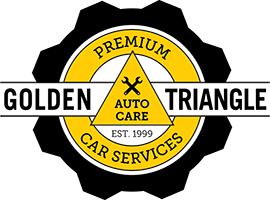
Call Us Now
303-573-1335

One way to improve gas mileage is, of course, to drive by your local pumps every now and again and hope for the best (!) in terms of the wildly fluctuating cost of fuel. A more practical approach, however, is to get out a pen and paper and make an easy to follow checklist from our February Fuel Savings discussion below.
-
Topping Off the Tank. Well, for one thing – Don’t Do It! …Okay, okay, so it’s not the most complex item we use to lead off today’s list. But it can be the most frustrating from a tip-giving standpoint. Gas that is added after the nozzle clicks off tends to slop and seep off. Depending on how much you drive and how many times you fill up each month, those are pennies (or nickels or dimes) drip, drip, dripping out of your pocket.
Whew! Okay, we feel better now. Let’s continue…
-
Fuel Choice. Really, there’s no need to impress a date – or the driver filling up at the next pump – by making a showy choice of 92 octane gas. Unless your car specifically requires premium fuel, you’re best off buying the lowest octane that is appropriate for your vehicle. Using higher octane fuel does not improve fuel economy.
-
And when you’re done not impressing with your choice of fuel, be sure to Tighten the Gas Cap. Gasoline is a sneaky one, and when given the opportunity of an escape route (i.e., path to open air provided by a missing, loose or damaged fuel cap), it will take that path to the tune of up to 30 gallons lost per year.
-
Tire Inflation. As you’ve likely heard before, tire inflation has a significant effect on gas mileage. Underinflated tires create more resistance between tire and road, making your engine work harder to cover the same amount of miles. Check the recommended inflation for your car and keep on top of this with at least monthly checks, to avoid losing as much as 15%, or about 2 mpg, on fuel economy (not to mention a similar 15% on reduced tire life).
-
In Tune, In Harmony. A misfiring spark plug can translate to a full 30% decrease in fuel efficiency. The cost of a poorly running engine can be 4% or more when it comes to mileage. Keep your engine tuned and maintained to put money back in your wallet.
-
Watch that Speed! Driving over 60 mph has been shown to decrease fuel economy.
-
Extra Weight can be a Drag. Trim your car’s fighting weight by removing any unnecessary items from the trunk and cabin. That full golf bag will cost you about $130 per year to lug around town, if you average 15,000 miles annually.
You can further reduce drag by removing unused roof racks or other attachments; and by periodically checking and maintaining your car’s alignment.
-
Breathe in, Breathe out. There’s a reason we change that air filter every 12,000 – 15,000 miles (check manual for your vehicle’s recommendation). Clean air allows easier acceleration and, in turn, reduced fuel consumption.
-
Speaking of air, a check of your Oxygen Sensors might be in order. While the life expectancy of a modern sensor is upwards of 100,000 miles, sensors can develop problems sooner than that, and the cost can be steep – perhaps a 40% decline in fuel economy, or 0.15 per gallon. Your mechanic can perform a quick check here periodically.
-
Oil Type. All things being equal, a thinner oil gives better fuel mileage than a thicker one. However, there are other considerations when selecting oil type. Your mechanic can provide more explanation on this aspect of fuel economy.
